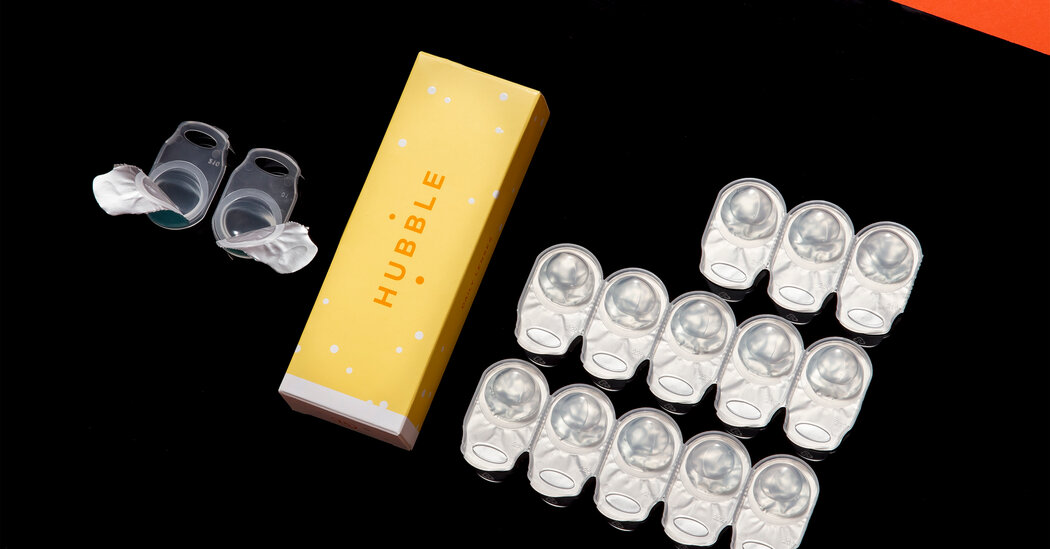
Vision Path, the maker of Hubble contact lenses, will pay $3.5 million to settle Federal Trade Commission charges that the company failed to obtain customers’ prescriptions or to properly verify prescription information and that it substituted Hubble lenses for those actually prescribed to consumers.
The company’s practices violated F.TC. rules around selling contact lenses, the commission said in a release on Friday. The F.T.C. also said that, in another violation of its rules, many online reviews of Hubble had been written by people who had been compensated, including in at least one instance one of its own executives.
The settlement comes after an investigation by The New York Times in 2019 detailed criticism of Hubble by optometrists and ophthalmologists. They said that the brand’s direct-to-consumer model bypassed eye care professionals, that it did not properly vet prescriptions and that it took advantage of federal regulations to sell customers its own brand of contact lenses. Industry professionals told The Times that Hubble switched people out of their prescribed lens brands and into Hubble’s lenses, which could be harmful to customers.
Vision Path and Hubble sought to disrupt the contact lens industry by offering a line of low-cost daily lenses via monthly $39 subscriptions. The company, which raised more than $70 million in funding from venture firms and companies like Colgate-Palmolive, marketed itself heavily through social media and sought to mimic the success of other direct-to-consumer companies like Harry’s and Dollar Shave Club.
But contact lenses are typically fitted, prescribed and sold by optometrists, who often specify brands from major manufacturers like Acuvue Oasys or Biofinity Toric in prescriptions. Before selling lenses, companies must obtain a copy of a consumer’s prescription or verify their information with a prescriber.
The F.T.C. said that until it began investigation, Hubble failed to ask consumers for copies of their contact lens prescriptions and typically would not allow customers to provide their prescriptions on its website. This, according to the F.T.C., “ensured that Hubble could not receive customers’ prescriptions and thus could act as though it was unaware that these consumers had prescriptions for non-Hubble lenses.” The company sometimes failed to make required attempts to verify customer-provided prescription information or made it difficult or impossible for prescribers to verify prescriptions, according to the F.T.C.
“Hubble’s business model boosted its bottom line but created needless risk for its customers’ eye health,” Samuel Levine, the director of the F.T.C.’s Bureau of Consumer Protection, said in the release.
Vision Path said in a statement on Friday that it disagreed with many of the F.T.C.’s claims but believed a settlement was the best way for Hubble to move forward.
“The F.T.C’s allegations relate to a period when the company was just starting up, and all requirements in the order were addressed long ago through improvements to our systems and internal processes,” said Steven Druckman, the chief executive of Vision Path.




